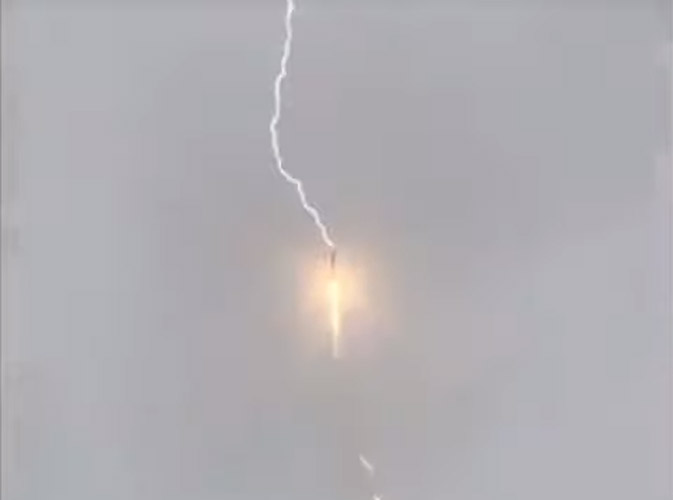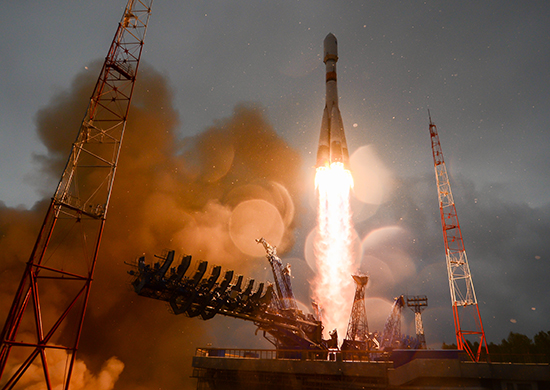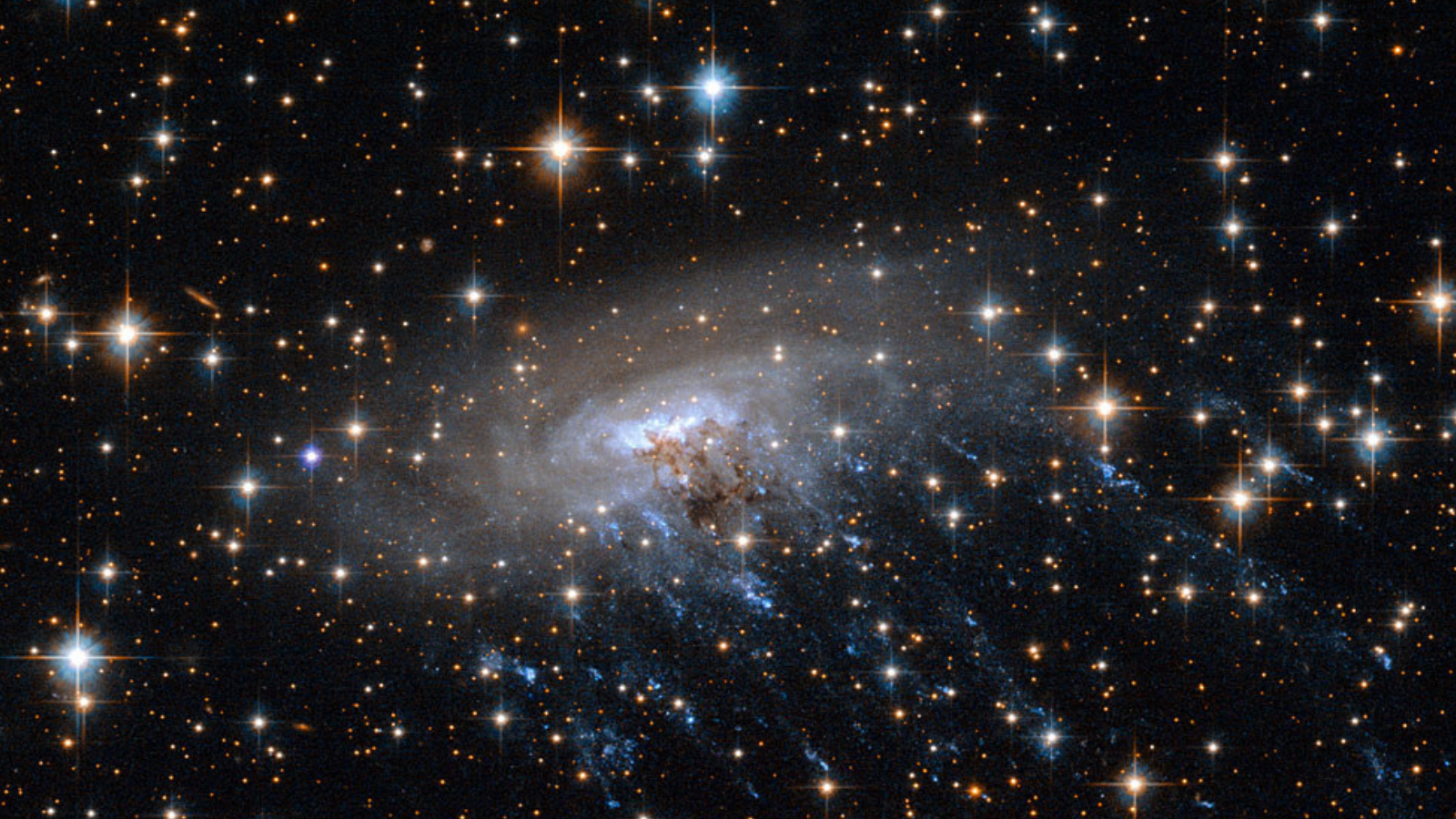Lightning Strikes Russian Rocket During Satellite Launch (But Everything's Fine)
It was a shocking sight during liftoff.
Breaking space news, the latest updates on rocket launches, skywatching events and more!
You are now subscribed
Your newsletter sign-up was successful
Want to add more newsletters?

Delivered daily
Daily Newsletter
Breaking space news, the latest updates on rocket launches, skywatching events and more!

Once a month
Watch This Space
Sign up to our monthly entertainment newsletter to keep up with all our coverage of the latest sci-fi and space movies, tv shows, games and books.

Once a week
Night Sky This Week
Discover this week's must-see night sky events, moon phases, and stunning astrophotos. Sign up for our skywatching newsletter and explore the universe with us!

Twice a month
Strange New Words
Space.com's Sci-Fi Reader's Club. Read a sci-fi short story every month and join a virtual community of fellow science fiction fans!
A bolt of lightning struck a Russian Soyuz rocket during a satellite launch Monday (May 27), but did not hinder the booster's trip into space, Russian space officials said.
The lightning strike occurred during the launch of a Glonass-M navigation satellite from Russia's Plesetsk Cosmodrome about 500 miles (800 kilometers) north of Moscow at 9:23 a.m. Moscow time (0623 GMT). In a statement, officials with Russia's space agency Roscosmos announced that the rocket successfully reached orbit.
"Lightning is not an obstacle for you!" Roscosmos Director General Dmitry Rogozin wrote on Twitter while congratulating the Glonass-M launch team and military Space Forces. He shared a wild video of rocket as it was struck by lightning.
Related: Watch Video of the Soyuz Rocket Launch Lightning Strike!
Roscosmos used a Soyuz 2.1b booster equipped with a Fregat upper stage to launch Glonass-M, the latest in a series of navigation satellites to support Russia's military and civilian customers.
"A stable telemetric connection is established and maintained with the spacecraft," officials with Russia's Ministry of Defense wrote in this translated update. "The on-board systems of the Glonass-M spacecraft are functioning normally."
Поздравляем командование Космических войск, боевой расчёт космодрома Плесецк, коллективы РКЦ "Прогресс" (Самара), НПО имени С.А.Лавочкина (Химки) и ИСС имени академика М.Ф.Решетнёва (Железногорск) с успешным запуском КА ГЛОНАСС! Молния вам не помеха pic.twitter.com/1cmlZ4hD1gMay 27, 2019
Lightning strikes during rocket launches are rare, but not unprecedented.
Breaking space news, the latest updates on rocket launches, skywatching events and more!
In November 1969, lightning struck a Saturn V rocket twice during the launch of NASA's Apollo 12 mission to the moon.
The jolt disrupted some onboard displays for Apollo 12's three-man crew, but the Saturn V successfully reached orbit. After a careful systems review, flight controllers ultimately found Apollo 12's systems in good health and the moon landing mission went on as planned.
- Rocket Launches: The Latest Videos, Photos and Missions
- Russia's Space Centers and Launch Sites in Pictures
- The Top 10 Russian and Soviet Space Missions
Email Tariq Malik at tmalik@space.com or follow him @tariqjmalik. Follow us @Spacedotcom and Facebook.

Tariq is the award-winning Editor-in-Chief of Space.com and joined the team in 2001. He covers human spaceflight, as well as skywatching and entertainment. He became Space.com's Editor-in-Chief in 2019. Before joining Space.com, Tariq was a staff reporter for The Los Angeles Times covering education and city beats in La Habra, Fullerton and Huntington Beach. He's a recipient of the 2022 Harry Kolcum Award for excellence in space reporting and the 2025 Space Pioneer Award from the National Space Society. He is an Eagle Scout and Space Camp alum with journalism degrees from the USC and NYU. You can find Tariq at Space.com and as the co-host to the This Week In Space podcast on the TWiT network. To see his latest project, you can follow Tariq on Twitter @tariqjmalik.


